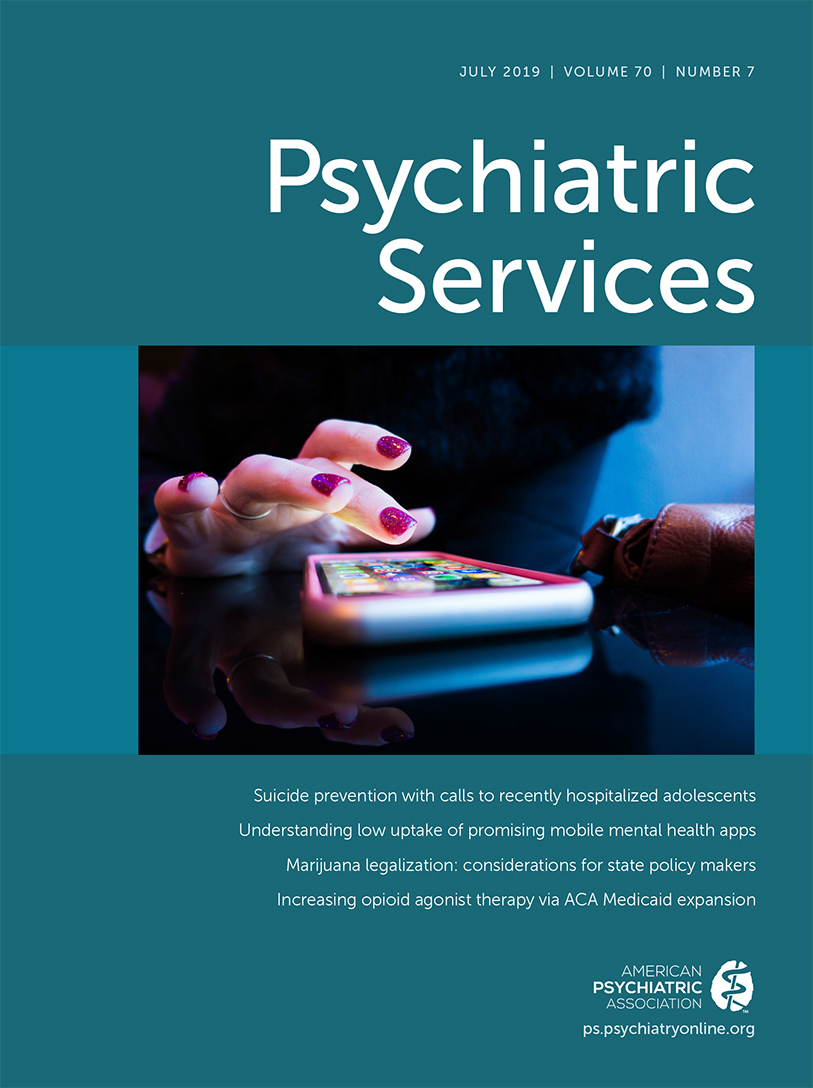Outcomes of Psychoeducation and a Text Messaging Adherence Intervention Among Individuals With Hypertension and Bipolar Disorder
Abstract
Objective:
This study evaluated the feasibility, acceptability, and preliminary efficacy of psychoeducation plus an automated text messaging intervention (Individualized Texting for Adherence Building–Cardiovascular [iTAB-CV]) to improve adherence to antihypertensives and bipolar disorder medication.
Methods:
After a psychoeducation program, iTAB-CV was administered for 2 months. In month 1, participants received one educational-motivational and one mood rating text daily. In month 2, medication reminders were added.
Results:
The sample (N=38) was 74% African American and 53% women, with a mean±SD age of 51.53±9.06. Antihypertensive nonadherence decreased from a mean of 43%±23% to 21%±18% at 12 weeks (χ2=34.6, df=3, p<0.001). Systolic blood pressure decreased from a mean of 144.8±15.5 mmHg to 136.0±17.8 mmHg (χ2=17.6, df=3, p<.001). Retention was 100%.
Conclusions:
In this uncontrolled trial, participants were highly engaged and medication adherence and reduced systolic blood pressure were sustained after psychoeducation plus iTAB-CV. Because iTAB-CV is automated and delivered remotely, it has the potential to reach a large and challenging population.



